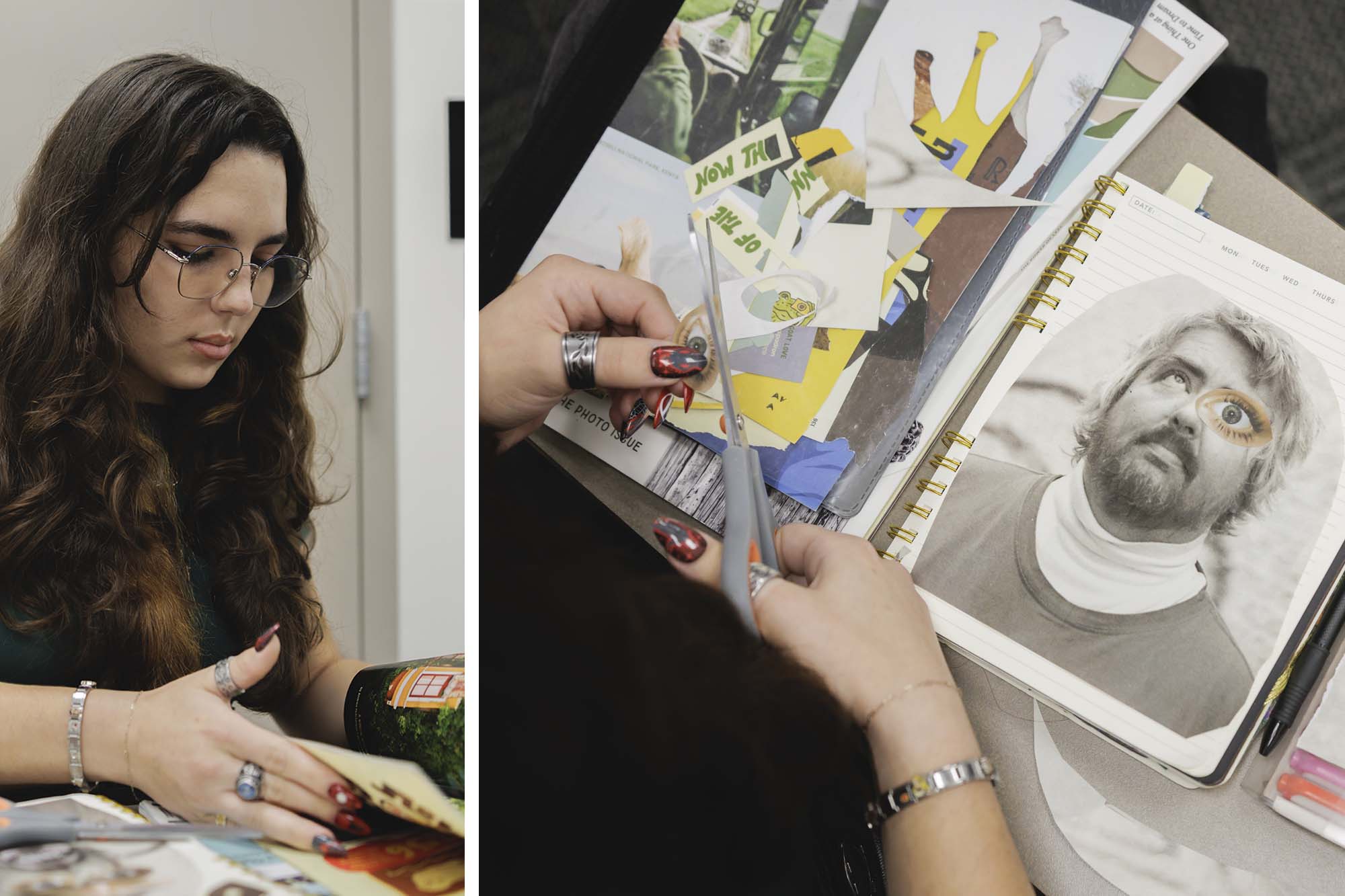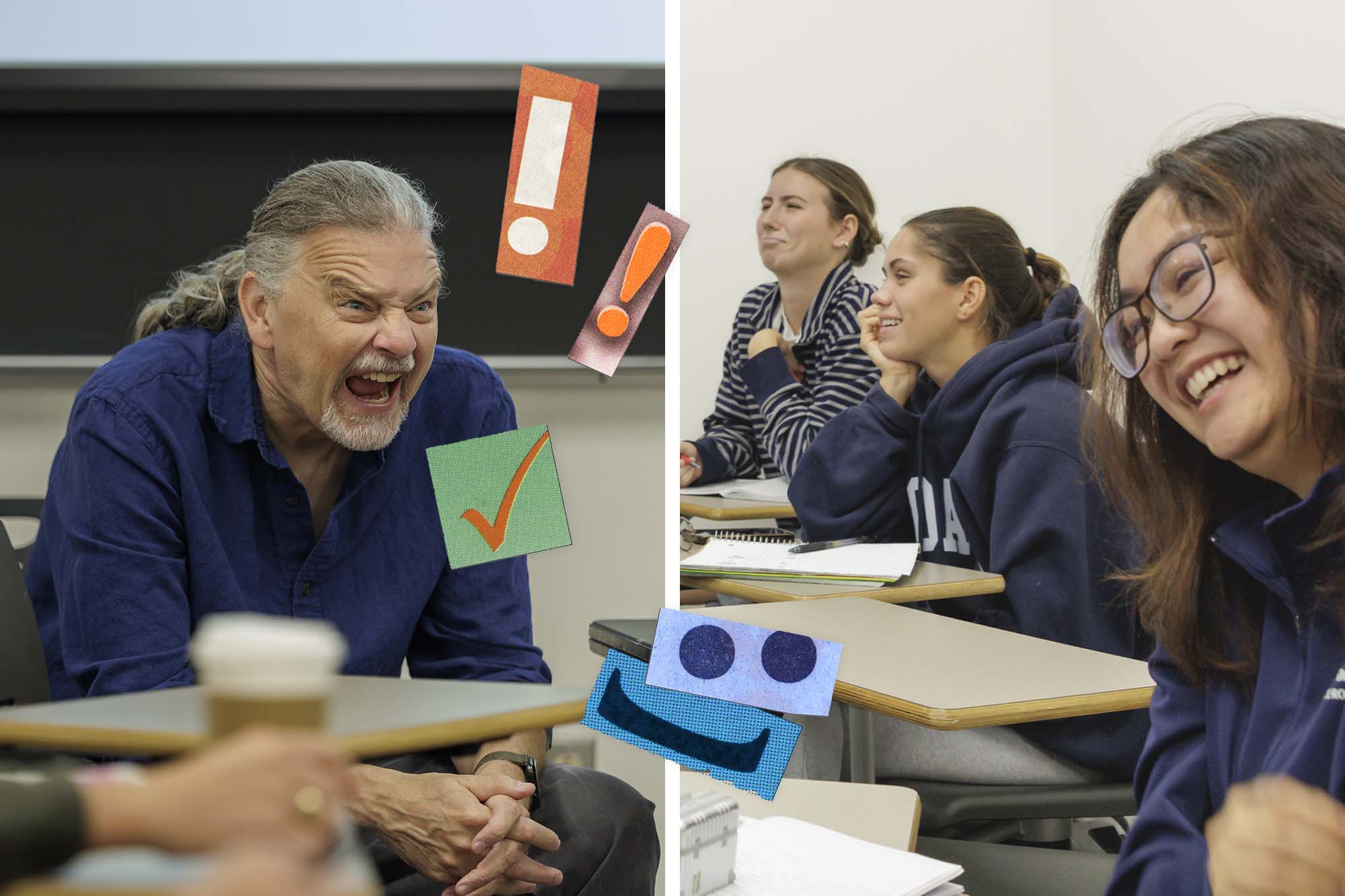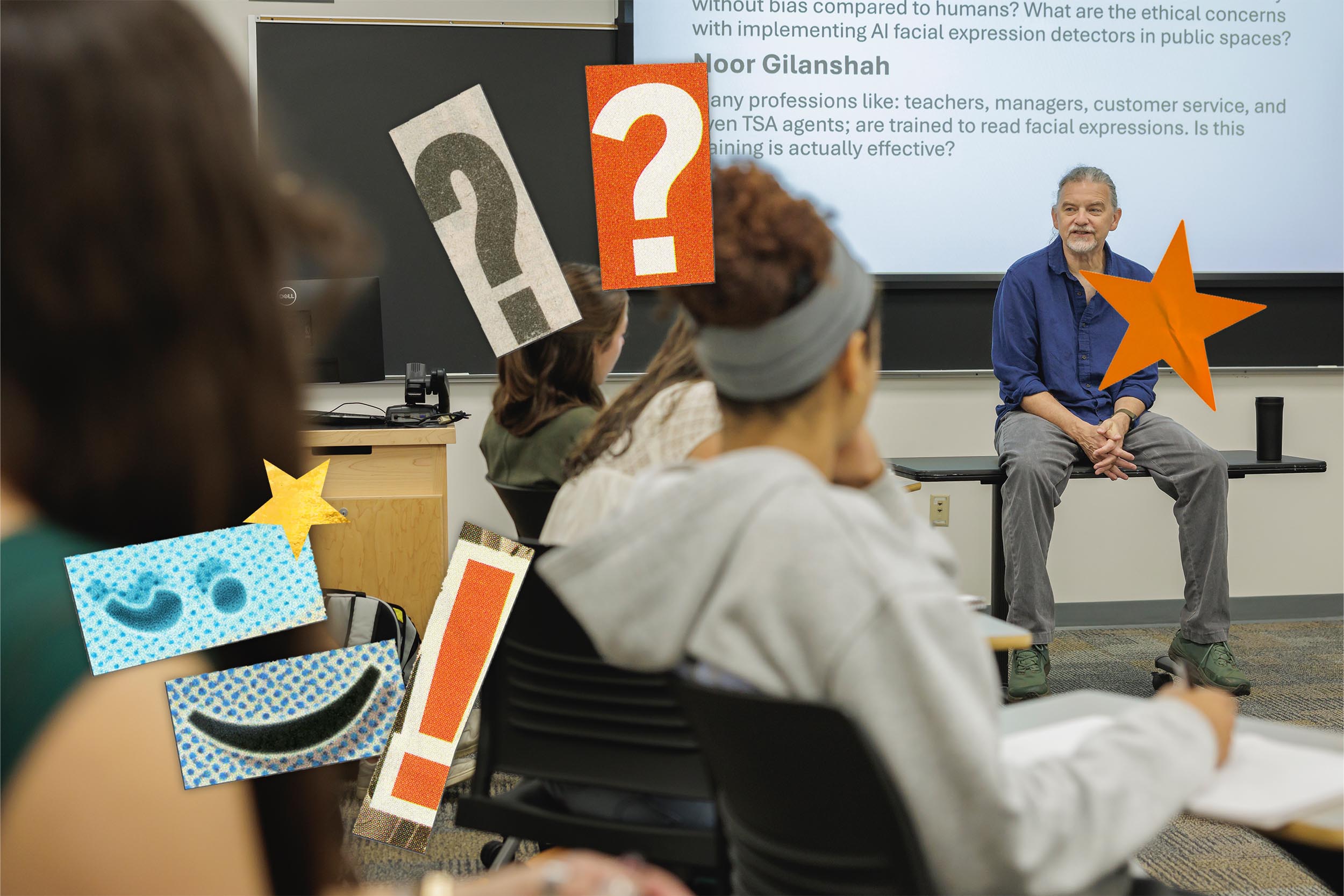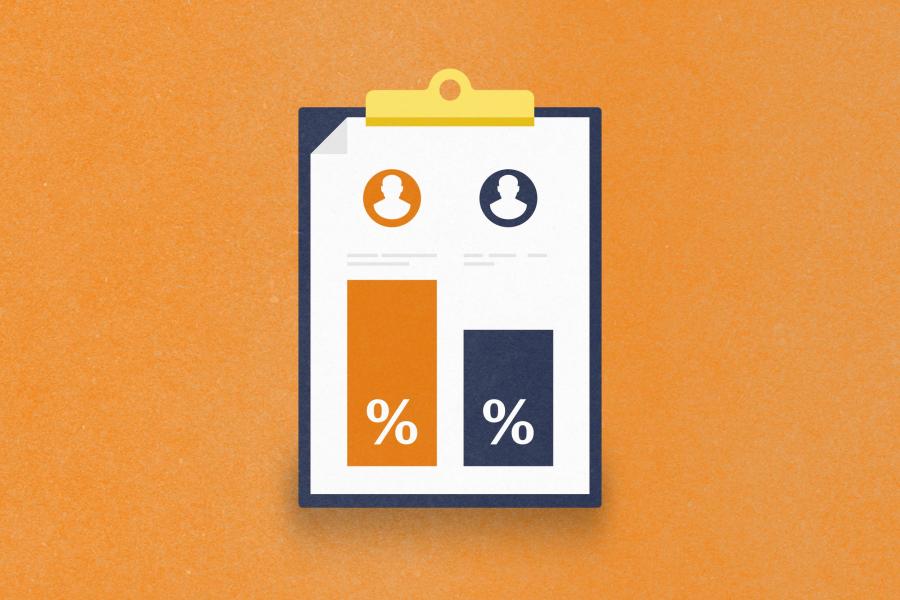The first thing you may notice about Jim Coan’s intimate class is that every student is writing. No one is typing on a laptop or tablet. No phones are out.
It’s very analog.
The professor of psychology is in his 20th year at the University of Virginia, and his teaching style has undergone a complete makeover.

Charly Beasley creates collages to remember the day’s lesson. (Photo by Lathan Goumas, University Communications)
Gone are the midterms and final exams that scaffold a typical college course. “What I really thought about was, ‘How do I create a learning experience that’s likely to stick? That people are going to remember?’ And I just started applying some human psychology,” he explained.
That meant making the learning experience meaningful. “How do you make it meaningful? Make it personal. How do you make it personal? Have people write stuff by hand, draw pictures, make art, make poems,” he said.

Psychology professor Jim Coan mimics the face animals make when they are about to attack, eliciting laughter from his students. (Illustration by Meredith Michael Smith, University Communications; photos by Lathan Goumas, University Communications)
In his neuroscience of emotion course of 25 students, writing is the backbone. Each student buys a notebook, preferably an old-school, black-and-white-marble composition pad. They come to the Tuesday and Thursday class sessions having already read their assignment, ready to talk about it and ask questions. You can hear the scratch of pencils on paper the entire class, the last 15 minutes of which are reserved for more note-taking, drawing or collaging about the day’s topic.











